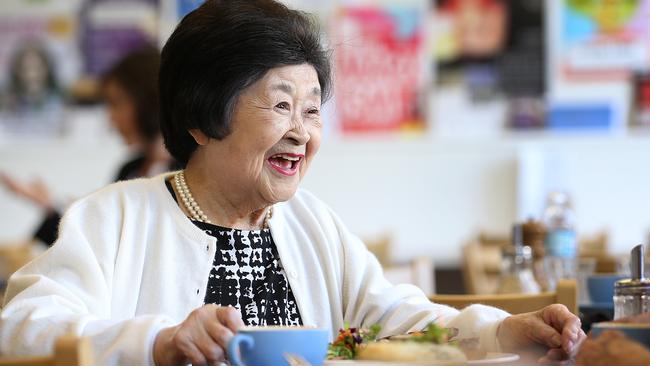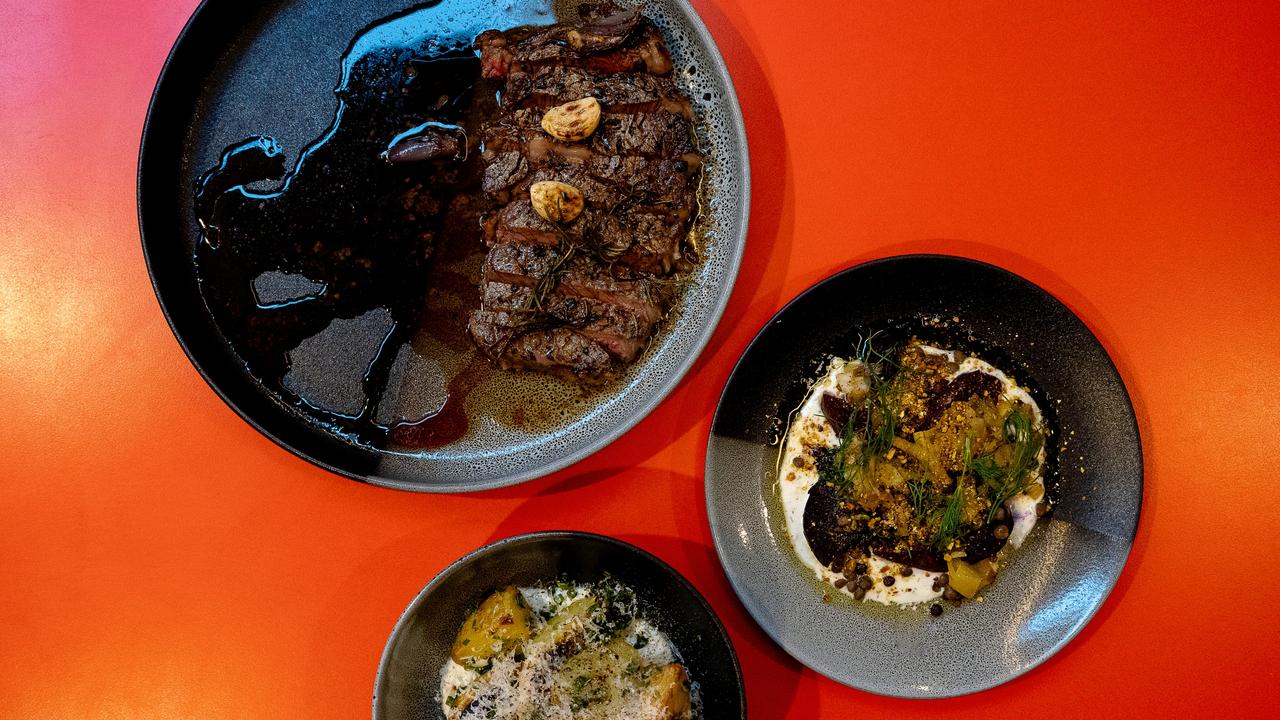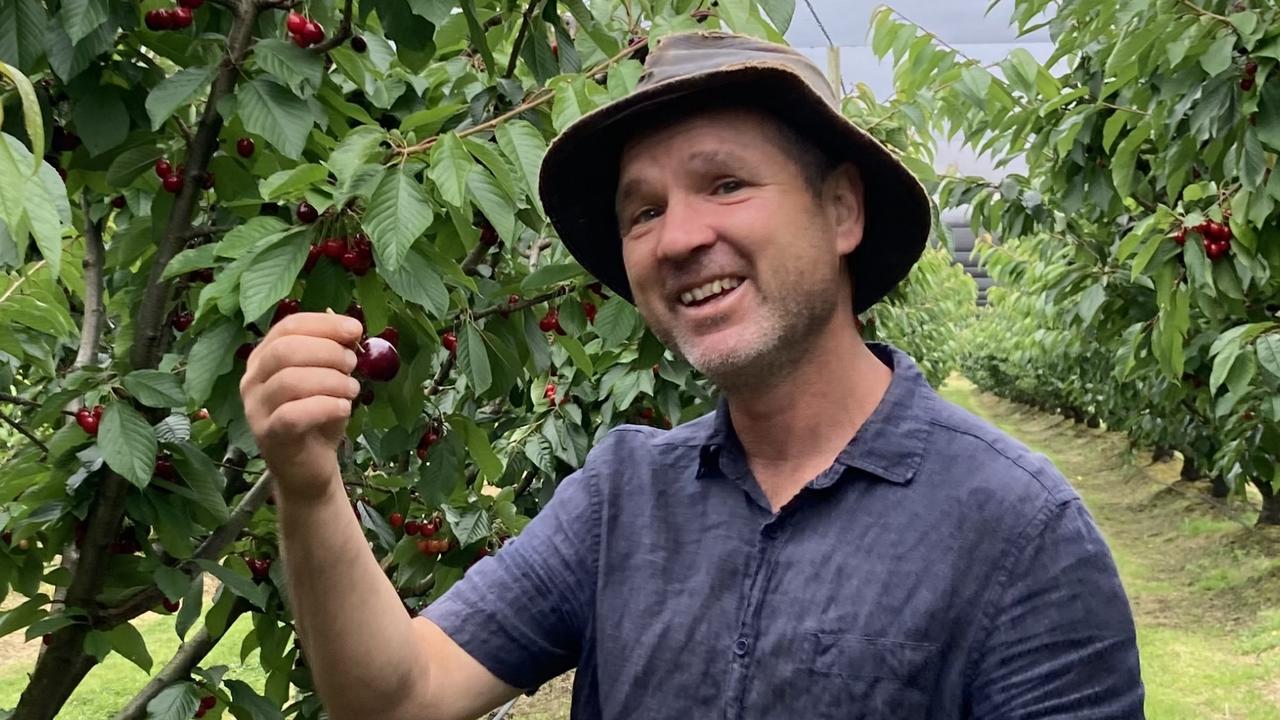Tasmanian identity Ivy Chung, now 90, reflects on a life well lived
WHAT has been your favourite thing in your life, Ivy Chung was once asked. Without missing a beat she replied: “Work.”

Food and Wine
Don't miss out on the headlines from Food and Wine. Followed categories will be added to My News.
WHAT has been your favourite thing in your life, I once asked Ivy Chung. Without missing a beat she replied: “work”.
Just as well, because work began early for Ivy — as a 14-year-old helping out in her parents’ grocery store in Queenstown.
And it ended late — just five years before Ivy celebrated her 90th birthday last Saturday.
Ivy and her older sister Ruby were the only “different coloured” children in Queenstown, she says. Maltese and Polish workers who built the Hydro and the roads were the only other foreigners in town.
Not that the girls and their mother Lillian were in the least foreigners. Ivy’s maternal grandmother was one of the first three Chinese women to come to Tasmania and Lillian was born here. Only her father, Willie Yee Sing, emigrated from China in the late 1880s.
“We had a bob and long plaits and the kids would come behind you and they’d pull your hair and pinch you just because you were different,” she says.
Straight after school the girls went to work in the shop. Sugar and flour came in sacks of 100kg and it was the girls’ job to bag them into 500g lots.
In 1942, the family moved to Hobart and ran a mixed business in Elizabeth St. In Liverpool St, Sim Chung worked in his father’s shop. The two met and kept up a correspondence for some time before they went out for the first time. She was 20 and he was 29, and her father was waiting outside the Avalon Cinema in Melville St to take her home when the movie ended. They married in November 1947.
“I got married at 12 o’clock and was back at work at 1.30pm,” Ivy says.
“I just changed shops.”
A year later their son Michael was born and two years later David was born.
In 1956, the family opened Hobart’s first Chinese restaurant, The Golden Dragon, downstairs at 86 Murray St.
But new responsibilities did not remove the old ones.
“The day used to start, religiously, at 5am,” Ivy says. “We used to go out and cut the lettuces fresh in the garden, and we used to load the truck and one of us would bring the car and drop off the kids at school and the other would bring the truck with the vegetables.
“That’s how it was.”
In the evening, Ivy would change into a cheongsam, have her hair done very high, and begin working managing the front of house at the 160-seat Golden Dragon.
I wrote in Tasmania’s Table (Tas Food Books 2015) how, in 2012, Jean O’Neil, who began waitressing at the Golden Dragon on her 22nd birthday in 1956, set about contacting as many of the former staff as she could find.
Now five to eight of the women who worked there get together every couple of months for a Chinese lunch, a remarkable endorsement of how much they enjoyed their work as long as 50 years ago.
The women can remember the menu numbers and the customers. The moment a young Michael Hodgman came through the door the waiter would order chicken chow mein for him. Future governor of Tasmania Peter Underwood went for garlic prawns.
After 23 years in the restaurant, Sim became ill with a return of polio (he died in 2002) and the Golden Dragon closed.
In 2011, Ivy had to retire. She found it very difficult.
“As soon as I got to work the boys were waiting there for me to unlock the gate and then I turned off the security. I’d turn on the computer and the phone would start ringing, and then you would start putting pink slips through for the boys.
“Then suddenly not a phone call, not a door shutting, not a face you know. That was the hardest time of my life.”
She was a good fit for SecondBite, the food rescue service, where she volunteered straight after retiring.
“They treat me like a queen.”
Ivy celebrated her birthday at the Me Wah restaurant with her sons Michael and David, friends and family. The banquet ended not with her birthday cake, but with noodles — symbolic of longevity.


